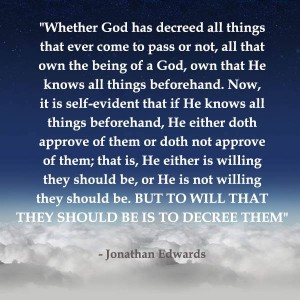James Bishop in an article entitled “Former Atheists Speak. 44 Quotes” writes:
Here follows a list of quotes I’ve collected and compiled from over the last two or so years (my digital quote library is bursting at its edges!). There is no particular form that these quotes take, rather each is from the unqiue story of each former atheist. Where possible, I’ve left links that readers can follow to find out more about each conversion testimony, or articles that they’ve authored. The others are predominantly from books that i’ve read.
Wallace is a cold-case homicide detective, assistant professor of apologetics at Biola University, Christian case maker and author. He was once a vocal atheist.
“In the end, I came to the conclusion that the gospels were reliable eyewitness accounts that delivered accurate information about Jesus, including His crucifixion and Resurrection. But that created a problem for me. If Jesus really was who He said He was, then Jesus was God Himself. If Jesus truly did what the gospel eyewitnesses recorded, then Jesus is still God Himself. As someone who used to reject anything supernatural, I had to make a decision about my naturalistic presuppositions.“
-Warner Wallace (‘Jesus Is Evidence That God Exists.’)
“If skeptics were willing to give the Gospels the same ‘benefit of the doubt’ they are willing to give other ancient documents, the Gospels would easily pass the test of authorship.”
-Warner Wallace (‘Cold Case Christianity.’)
Frank is a mathematical physicist and cosmologist, holding a joint appointment in the Departments of Mathematics and Physics at Tulane University.
“When I began my career as a cosmologist some twenty years ago, I was a convinced atheist. I never in my wildest dreams imagined that one day I would be writing a book purporting to show that the central claims of Judeo-Christian theology are in fact true, that these claims are straightforward deductions of the laws of physics as we now understand them. I have been forced into these conclusions by the inexorable logic of my own special branch of physics.”
-Frank Tipler (‘The Physics Of Immortality.’)
Alister is theologian, scientist, and a priest. He has delivered various lectures and presentations on God, faith, and science.
“Atheism, I began to realize, rested on a less-than-satisfactory evidential basis. The arguments that had once seemed bold, decisive, and conclusive increasingly turned out to be circular, tentative, and uncertain.”
-Alister McGrath (‘Breaking the Science-Atheism Bond.’)
“Christianity offers a worldview that leads to the generation of moral values and ideals that are able to give moral meaning and dignity to our existence.”
-Alister McGrath (‘Christian Quotes: Alister McGrath.’)
Lee was once a self-described militant atheist who worked at the Chicago Tribune. He is now a widely known Christian author, journalist, apologist and pastor, as well as author of the book Case For Christ.
“It was the evidence from science and history that prompted me to abandon my atheism and become a Christian.”
“To be honest, I didn’t want to believe that Christianity could radically transform someone’s character and values. It was much easier to raise doubts and manufacture outrageous objections that to consider the possibility that God actually could trigger a revolutionary turn-around in such a depraved and degenerate life.”
-Lee Strobel (‘Case For Christ: A Journalist Investigates the Toughest Objections to Christianity.’)
“…the scientific data point powerfully toward the existence of a Creator and that the historical evidence for the resurrection establishes convincingly that Jesus is divine.”
-Lee Strobel (‘Finding the Real Jesus: A Guide for Curious Christians and Skeptical Seekers.’)
Rick Oliver has his Ph.D. in Biology from the University of California, Irvine. He is a member of the American Federation of Herpetoculturalists, the California Science Teachers Association, and the New York Academy of Science.
“I remember how frustrated I became when, as a young atheist, I examined specimens under the microscope. I would often walk away and try to convince myself that I was not seeing examples of extraordinary design, but merely the product of some random, unexplained mutations.”
-Rick Oliver (‘Designed to Kill in a Fallen World.’)
William Ramsey (1851 – 1939) was a Scottish archaeologist and New Testament scholar. By his death in 1939 he had become the foremost authority of his day on the history of Asia Minor and a leading scholar in the study of the New Testament.
“Christianity did not originate in a lie; and we can and ought to demonstrate this as well as believe it.”
“Further study . . . showed that the book (Acts) could bear the most minute scrutiny as an authority for the facts of the Aegean world, and that it was written with such judgment, skill, art and perception of truth as to be a model of historical statement.’”
-Sir William Ramsay (‘The Bearing of Recent Discovery on the Trustworthiness of the New Testament.’)
Lewis (1898 – 1963), a former atheist, is one of the most widely read Christian apologetic author today. He is the mind behind the Narnia entertainment series, and some of his most popular Christian writings read widely today are Mere Christianity and The Screwtape Letters.
“Atheism turns out to be too simple. If the whole universe has no meaning, we should never have found out that it has no meaning.”
-C.S. Lewis (‘Mere Christianity.’)
“Supposing there was no intelligence behind the universe, no creative mind. In that case, nobody designed my brain for the purpose of thinking. It is merely that when the atoms inside my skull happen, for physical or chemical reasons, to arrange themselves in a certain way, this gives me, as a by-product, the sensation I call thought. But, if so, how can I trust my own thinking to be true? It’s like upsetting a milk jug and hoping that the way it splashes itself will give you a map of London. But if I can’t trust my own thinking, of course I can’t trust the arguments leading to Atheism, and therefore have no reason to be an Atheist, or anything else. Unless I believe in God, I cannot believe in thought: so I can never use thought to disbelieve in God.”
-C.S. Lewis (‘The Case for Christianity.’)
“A young man who wishes to remain a sound Atheist cannot be too careful of his reading. God is, if I may say it, very unscrupulous.”
-C.S. Lewis (‘Surprised by Joy.’)
Aleksandr Solzhenitsyn (1918 – 2008) was a Russian writer, and winner of the 1970 Nobel Prize in literature. He was pivotal in revealing what life was like in the days of the atheistic communist Soviet Union. He is the mind behind his powerful book Voice from the Gulag.
“Over a half century ago, while I was still a child, I recall hearing a number of old people offer the following explanation for the great disasters that had befallen Russia: “Men have forgotten God; that’s why all this has happened.” Since then I have spent well-nigh 50 years working on the history of our revolution; in the process I have read hundreds of books, collected hundreds of personal testimonies, and have already contributed eight volumes of my own toward the effort of clearing away the rubble left by that upheaval. But if I were asked today to formulate as concisely as possible the main cause of the ruinous revolution that swallowed up some 60 million of our people, I could not put it more accurately than to repeat: “Men have forgotten God; that’s why all this has happened.”
-Aleksandr Solzhenitsyn. (‘Voice from the Gulag.’)
Antony was a world leading atheist philosopher who belonged to the analytic and evidentialist schools of thought. He was known as a strong advocate of atheism, arguing that one should presuppose atheism until empirical evidence of a God surfaces. He also criticised the idea of life after death, the free will defence to the problem of evil, and the meaningfulness of the concept of God. In 2003 he was one of the signers of the Humanist Manifesto. In 2004 he stated an allegiance to deism, more specifically a belief in the Aristotelian God. He stated that in keeping his lifelong commitment to go where the evidence leads, he now believed in the existence of a god.
“It now seems to me that the findings of more than fifty years of DNA research have provided materials for a new and enormously powerful argument to design.”
“I now believe there is a God…I now think it [the evidence] does point to a creative Intelligence almost entirely because of the DNA investigations. What I think the DNA material has done is that it has shown, by the almost unbelievable complexity of the arrangements which which are needed to produce life, that intelligence must have been involved in getting these extraordinarily diverse elements to work together.”
“…we have all the evidence we need in our immediate experience and that only a deliberate refusal to “look” is responsible for atheism of any variety.”
-Antony Flew (‘There is a God: How the World’s Most Notorious Atheist Changed His Mind.’) Continue reading


